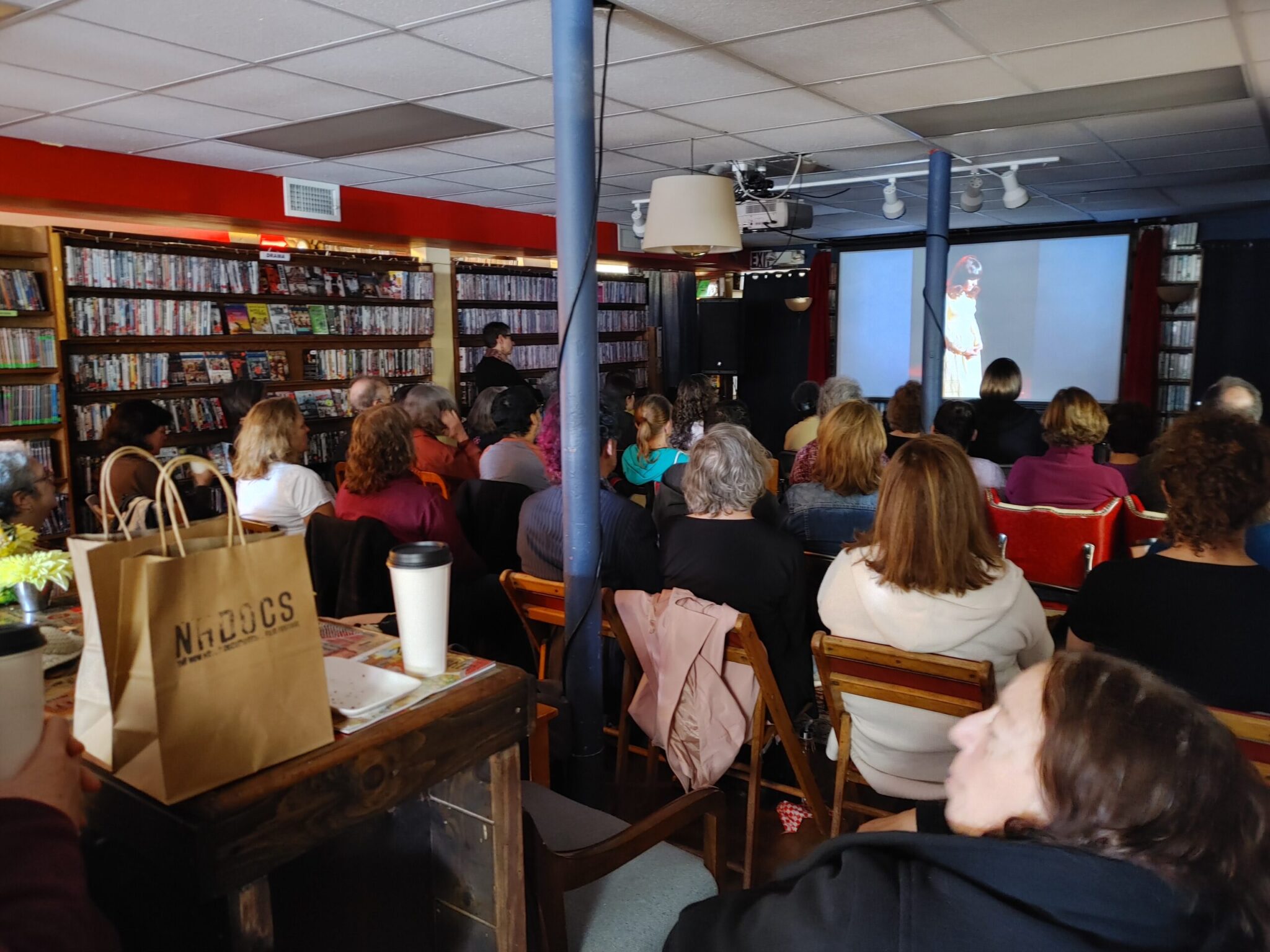New Haven Documentary Film Festival screens dozens of indie films
From Oct. 12 to 22, the New Haven Documentary Film Festival took place at different spots across the city.

Kamini Purushothaman, Contributing Photographer
Viewers flocked to the New Haven Documentary Film Festival at libraries, coffee shops and thrift stores around the city from Oct. 12 to Oct. 22 for the festival’s 10th run.
The series of events featured screenings of documentary films selected from hundreds of submissions, Q&A panels with filmmakers and a student film competition. Started a decade ago by filmmakers from Yale and New Haven, NHDocs organizers told the News that they seek to share a diverse range of documentaries.
A senior at Quinnipiac University, Julia Schnarr had two of her films, “Divinely Impossible: A Portrait of Tallulah Bankhead” and “Wonder Meadow,” screened at the festival.
“I’m just very happy that I got the opportunity to share my story with other people,” she said. “The film festival itself is a great way to see other collaborators and really just be immersed in the world of film.”
Katherine Kowalczyk, the administrative coordinator for Yale’s Film & Media Studies program, was one of the event’s organizers.
Kowalczyk said that the process of selecting films to screen is intense.
“It gets busy,” she said. “There are very impassioned moments and we have lots of discussions. Everyone has a voice and a different opinion.”
The process of film selection alone usually takes at least six months, and organizing the entire event is a year-long endeavor. The selection committee watches hundreds of hours of films in their pursuit of finding the most fitting ones.
Organizers told the News that the committee members are dedicated to promoting diversity, with selections that include themes of social justice, animal rights, environmentalism and LGBTQ+ issues.
The Student Film Competition has strict parameters about where contestants are from. Organizers said this is driven by the committee’s desire to promote local filmmakers. For the competition, contestants are required to be living in or around Connecticut.
“I think they have a good message of supporting young filmmakers,” contestant Julia Schnarr said. “They have a lot of films people my age or younger have submitted.”
Outside of the Student Film Competition, the festival promotes international films, accepting submissions from all over the world. By Kowalczyk’s own estimate, approximately 30 to 40 percent of accepted submissions are usually from creators outside the United States.
This year, Kowalczyk said one of her favorite films was “Being Michelle,” which follows the title character’s life as a deaf, autistic woman who survives incarceration and abuse. Emphasizing the documentary’s distinct portrayal of an individual’s disability, she said she values the importance of screening films about experiences that audiences might not otherwise learn about.
Kowalczyk has helped plan and run the documentary festival since its launch.
“It actually started at Yale with four films made by four Connecticut filmmakers,” she said. “And I was in administration, so that’s how I got involved.”
Though the festival started with involvement from Yale faculty, Kowalczy said she has observed that the screenings tend to draw a much larger crowd of New Haveners than Yale students. Expressing her wish for more students to attend the film festival, she spoke about the value of experiencing the city’s community through such events.
This year, Bow Tie Cinemas’s closing meant the event’s organizers had to explore more locations for film-screenings, according to Kowalczyk. Despite the logistical challenges that Bow Tie’s shutdown imposed, Kowalczyk said that it also created a unique opportunity to discover more local venues.
One such location was Gather, a vegetarian cafe located on State Street. Sultan Thahir, the cafe’s owner, said that it was “fantastic to host a screening in the space.”
“Sloane: A Jazz Singer” was screened in the cafe on Oct. 22. Later that day, the café held a Q&A with Sav Rodgers, director of the film “Chasing Chasing Amy.”
“I hope future event organizers consider smaller, local venues like Gather,” Thahir told the News, reflecting on the events’ success.
Other screening-locations included Best Video Film & Cultural Center, New Haven Museum and Witch Bitch Thrift.
Screenings were often held at the New Haven Free Public Library on Elm Street. The documentary festival has partnered with the New Haven Free Public Library for the past eight years. The festival operated on a “pay-what-you-can” system, with viewers encouraged to offer donations if they had the ability to. Guests could also purchase V.I.P. passes for $300, which gave them access to all the screenings, after parties, performances and panels.
This year, the festival had a successful opening with “Black Barbie,” a documentary about the creation of the first Black Barbie doll. Another popular screening, the short film “At Your Cervix” shed light on the American medical education system’s practices of using patients as “practice dummies” without their consent.
NHDocs gifted participating filmmakers with goodie bags including T-shirts and other merchandise.
Audience members, too, brought their enthusiasm to the showings. Attendance ranged from between 20 and 100 people per screening, according to Kowalczyk.
“I was really impressed with the audience response,” said Schnarr, referencing one man in the front row of her screening who eagerly laughed at every joke. “I felt very welcomed, and it was a great experience.”
The New Haven Documentary Film Festival takes place annually in October, and submissions for next year’s running open in January 2024.







